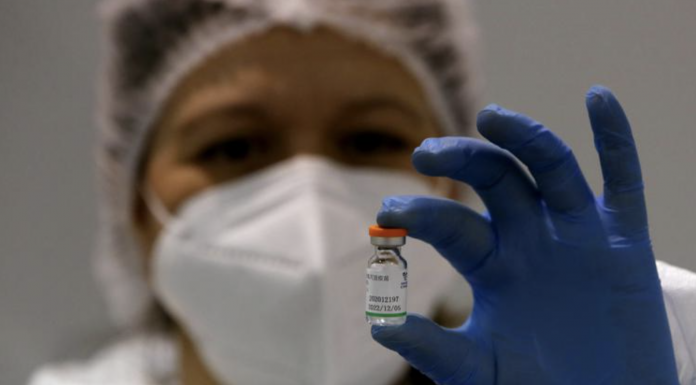REUTERS – Israel’s Health Ministry said on Tuesday it had found the small number of heart inflammation cases observed mainly in young men who received Pfizer’s COVID-19 vaccine in Israel were likely linked to their vaccination.
Pfizer has said it has not observed a higher rate of the condition, known as myocarditis, than would normally be expected in the general population.
In Israel, 275 cases of myocarditis were reported between December 2020 and May 2021 among more than 5 million vaccinated people, the ministry said.
The study found “there is a probable link between receiving the second dose (of Pfizer) vaccine and the appearance of myocarditis among men aged 16 to 30,” it said in a statement.
According to the findings, such a link was observed more among men aged 16 to 19 than in other age groups.
Pfizer said in a statement that it is aware of the Israeli observations of myocarditis, noting that no causal link to its vaccine has been established …
A U.S. Centers for Disease Control and Prevention advisory group last month recommended further study of the possibility of a link between myocarditis and mRNA vaccines, which include those from Pfizer and Moderna Inc. … Click here to read more.
Myocarditis and Pericarditis Following mRNA COVID-19 Vaccination
CDC, May 27, 2021
More than 165 million people have received at least one dose of COVID-19 vaccine in the United States, and CDC continues to monitor the safety of COVID-19 vaccines for any health problems that happen after vaccination.
Since April 2021, there have been increased reports to the Vaccine Adverse Event Reporting System (VAERS) of cases of inflammation of the heart—called myocarditis and pericarditis—happening after mRNA COVID-19 vaccination (Pfizer-BioNTech and Moderna) in the United States.
These reports are rare, given the number of vaccine doses administered, and have been reported after mRNA COVID-19 vaccination (Pfizer-BioNTech and Moderna), particularly in adolescents and young adults.
CDC and its partners are actively monitoring these reports, by reviewing data and medical records, to learn more about what happened and to see if there is any relationship to COVID-19 vaccination.
Most patients who received care responded well to medicine and rest and quickly felt better.
Cases reported to VAERS have occurred:
- Mostly in male adolescents and young adults age 16 years or older
- More often after getting the second dose of one of these two COVID-19 vaccines than after the first dose
- Typically within several days after COVID-19 vaccination
Patients can usually return to their normal daily activities after their symptoms improve, and they should speak with their doctor about return to exercise or sports.
CDC continues to recommend COVID-19 vaccination for everyone 12 years of age and older, given the greater risk of COVID-19 illness and related, possibly severe complications.
Getting vaccinated is the best way to help protect yourself and your family from COVID-19.
More information will be shared as it becomes available.
Myocarditis is inflammation of the heart muscle, and pericarditis is inflammation of the outer lining of the heart. In both cases, the body’s immune system causes inflammation in response to an infection or some other trigger. Learn more about myocarditis and pericarditis.



